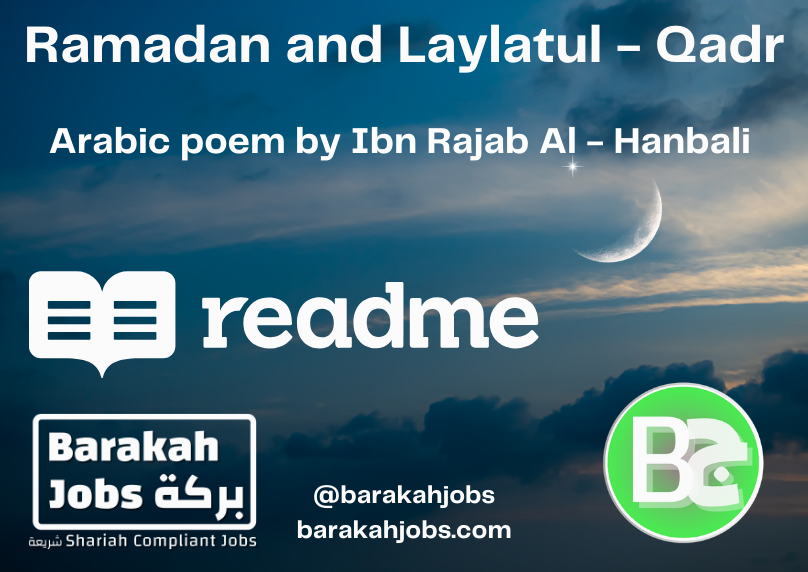
Arabic poetry composed by Ibn Rajab about Ramadan and Night of al-Qadr
English translation:
The years have past so carelessly and in jest and in loss
_20250303_170800_0000_681.png)
Ramadan: the Month of Forgiveness
رمضان هو شهر المغفرة
Ramadan is a month of great virtue, Barakah and a month of forgiveness. It is essential we make the most of this blessed month and make it a month of Ibadah (worship), rectification and repentance.
Abu Hurayrah (RA) reported that the Prophet ﷺ said: "When Ramadan enters, the gates of Paradise are opened, the gates of Hellfire are closed and the devils are chained." (Al-Bukhari and Muslim)
Narrated Abu Huraira رضي الله عنه :
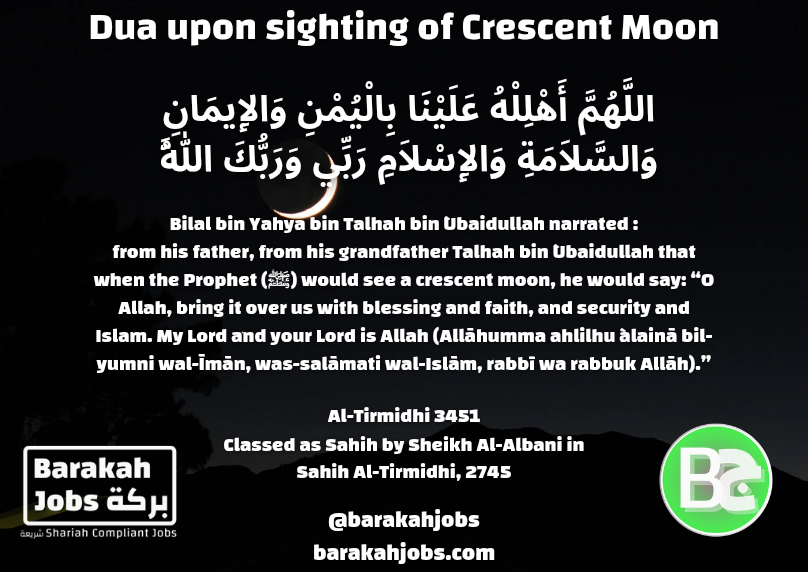
Ramadan Mubarak to all from barakah jobs. This blessed month is soon upon us.
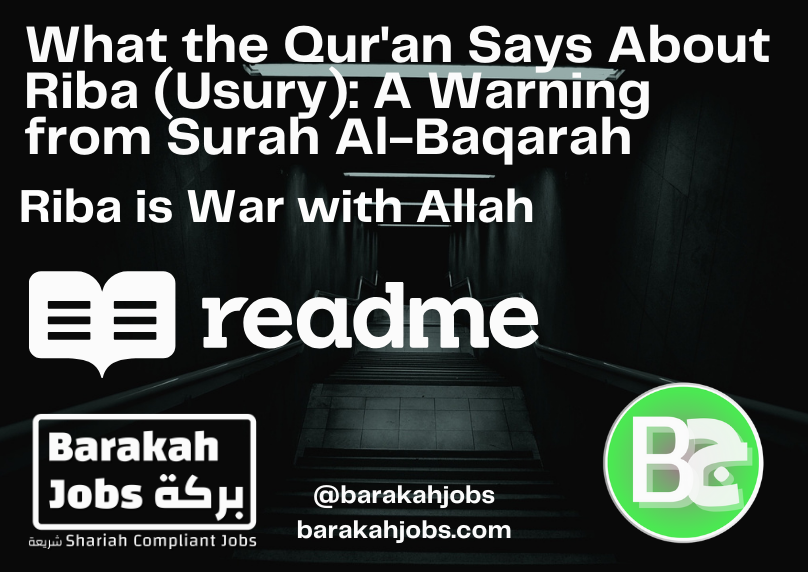

Learn a Comprehensive Dua from the Qur'an for the Best of the Dunya and the Akhira

The following is naseeha | نصيحة from the Sheikh (May Allah have mercy on him) for those earning haram income.
Advice to Earn Ḥalāl and Leave off Ḥarām – Shaykh Al-Albānī (رحمه الله)
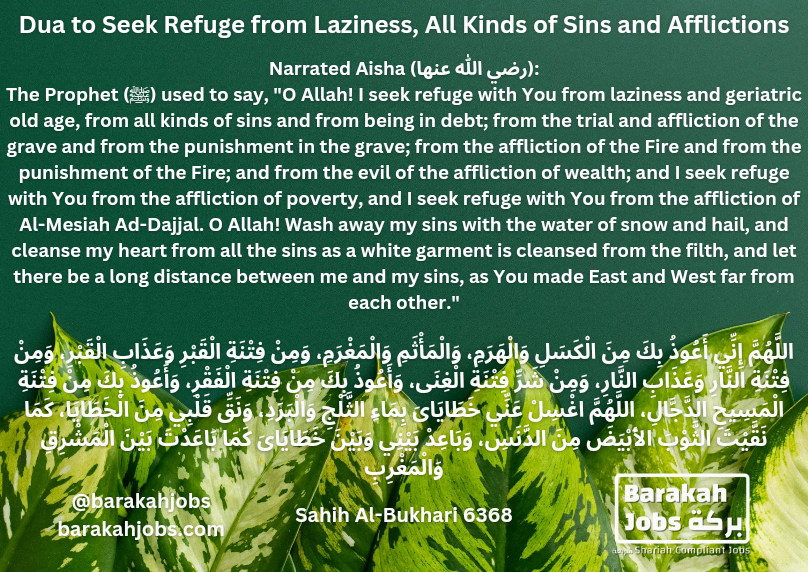
Dua to Seek Refuge from Laziness, All Kinds of Sins, and Afflictions
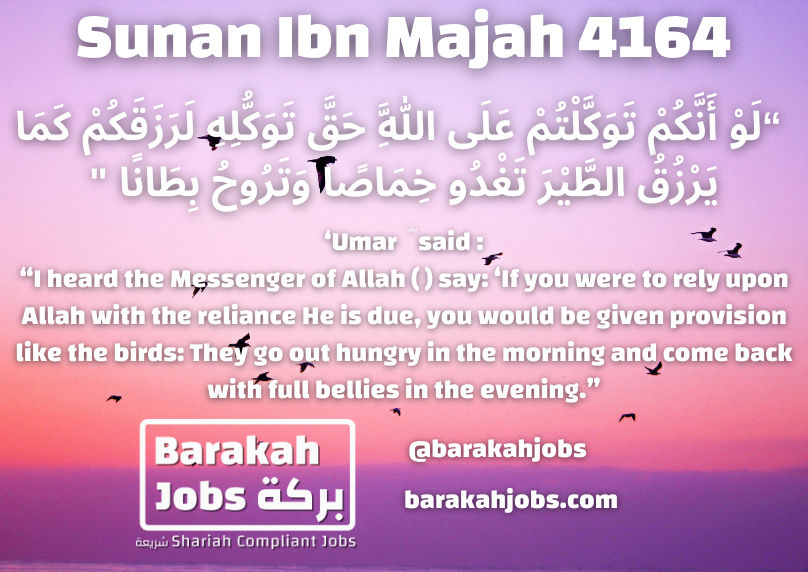
Sunan Ibn Majah 4164
‘Umar ؓ said :
“I heard the Messenger of Allah (ﷺ) say: ‘If you were to rely upon Allah with the reliance He is due, you would be given provision like the birds: They go out hungry in the morning and come back with full bellies in the evening.”
" لَوْ أَنَّكُمْ تَوَكَّلْتُمْ عَلَى اللَّهِ حَقَّ تَوَكُّلِهِ لَرَزَقَكُمْ كَمَا يَرْزُقُ الطَّيْرَ تَغْدُو خِمَاصًا وَتَرُوحُ بِطَانًا " .
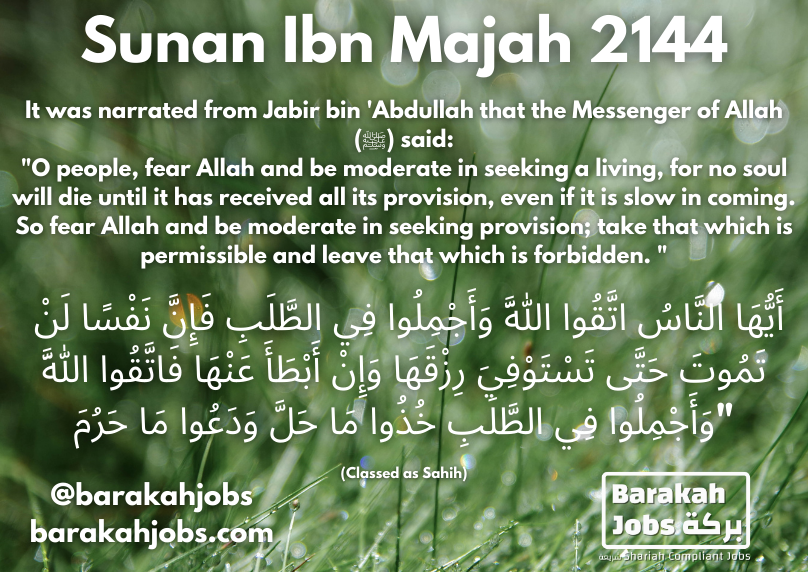
Sunan Ibn Majah 2144 is a profound narration that reminds us of Allah’s complete control over our provision (Rizq) and lifespan.
Sunan Ibn Majah 2144
It was narrated from Jabir bin 'Abdullah that the Messenger of Allah (ﷺ) said:
"O people, fear Allah and be moderate in seeking a living, for no soul will die until it has received all its provision, even if it is slow in coming. So fear Allah and be moderate in seeking provision; take that which is permissible and leave that which is forbidden. "
أَيُّهَا النَّاسُ اتَّقُوا اللَّهَ وَأَجْمِلُوا فِي الطَّلَبِ فَإِنَّ نَفْسًا لَنْ تَمُوتَ حَتَّى تَسْتَوْفِيَ رِزْقَهَا وَإِنْ أَبْطَأَ عَنْهَا فَاتَّقُوا اللَّهَ وَأَجْمِلُوا فِي الطَّلَبِ خُذُوا مَا حَلَّ وَدَعُوا مَا حَرُمَ " .
(Classed as Sahih)
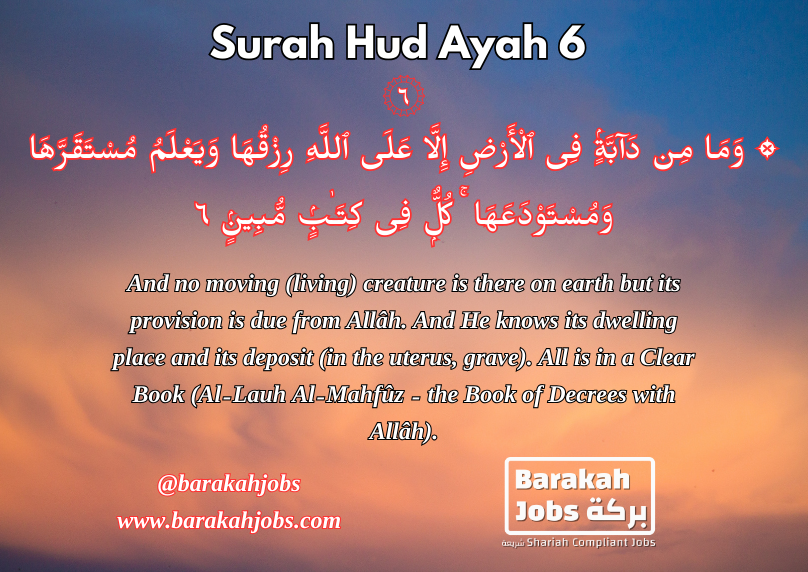
In the Qur'an, Allah emphasizes His boundless mercy and provision for all living creatures. Surah Hud Ayah 6 is a profound reminder of this reality.
۞ وَمَا مِن دَآبَّةٍۢ فِى ٱلْأَرْضِ إِلَّا عَلَى ٱللَّهِ رِزْقُهَا وَيَعْلَمُ مُسْتَقَرَّهَا وَمُسْتَوْدَعَهَا ۚ كُلٌّۭ فِى كِتَـٰبٍۢ مُّبِينٍۢ ٦
And no moving (living) creature is there on earth but its provision is due from Allâh. And He knows its dwelling place and its deposit (in the uterus, grave). All is in a Clear Book (Al-Lauh Al-Mahfûz - the Book of Decrees with Allâh).